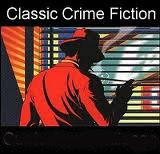© Marta Stephens 2011 all rights reserved
I never used to worry about the distinctions between the genres of romance and crime (a subgenre of mystery novels), until I started to write my crime fictions. In fact, I've always enjoyed reading both.
Lately, as I work through the various scenes of my WIP, I began to think about the differences between the two genres again.
My dilemma stems from the desire to create three-dimensional characters. By this I mean that like you and I, my protagonist has a family and a few close friends, he has bills to pay, a few hidden talents, and some habits (good or bad depending on your point of view). He eats and drinks, and on occasion, has an affair. Yes, I confess, he does have an eye for the ladies. Unfortunately for him, the romance must be restricted to a footnote in his life as a city detective. Why? Because the focus of the plot in a crime fiction must be the crime and the plot can never be detoured by a whimsical romantic affair, or can it?
Each of my novels has had a hint of an affair and although I love to write those scenes, I've had to hold back the urge to explore their relationship. So let’s look at the distinctions between these genres.
Romance: In a romance, the core of the story is the development of the love relationship between characters. The other events in the story line, regardless of importance, are secondary to that relationship. If the romance is taken out of this story, the novel would be reduced to insignificant events from the reader’s perspective and he or she would quickly lose interest.
Romantic Suspense: Simply put, in this genre the romance is poised among the events that keep the characters from coming together. In other words love hangs in the balance. There is tension throughout the novel until the problem/events are resolved. In the end, the romantic suspense is fulfilled and the two protagonists become a couple.
Crime Fiction: Crime is one of several subgenres within the mystery genre that deals with crimes, their detection, an investigation, the criminals, and their motives. The final outcome in a crime fiction usually ends in the criminal's arrest or death. In this genre, the core of the story is the crime and although some of the great authors of crime have dotted the pages of their novels with an occasional flirtatious interaction between characters, all other events (aside from the crime), regardless of importance, are secondary to the focus of bringing the criminal to justice.
So you see, it's not a crime to allow a bit of love into the detective fiction, as long as it doesn't take over the plot.
Happy Valentine!
About the author:
Marta Stephens writes crime mystery/suspense. Her books are available in paperback and e-book and Kindle formats.
THE DEVIL CAN WAIT (2008), Bronze Medal Finalist, 2009 IPPY Awards, Top Ten, 2008 Preditors and Editors Reader Poll (mystery).
ISBN: 978-1-905202-886-7
Tradebook: $15.99
E-book: $9.00
SILENCED CRY (2007) Honorable Mention, 2008 New York Book Festival, Top Ten, 2007 Preditors and Editors Reader Poll (mystery).
ISBN: 798-1-905202-72-0
Tradebook: $15.50
E-book: $9.00




5 comments:
I beg to disagree with you on one count. Not many criminals are brought to justice; more often than not they get away with murder and emerge as winners.So what's wrong if a criminal in my novel outsmarts the police and other crooks to emerge a winner... and laugh all the way to the bank?
Marta, some of my favorite mystery series (admittedly not always pure "crime" genres) have always had rich relationships/romances which enliven the story and bring the characters into 3D. I love these dearly - which is probably why I love your relationship in your books between Sam and Jennie. I've seen some of the big selling mystery authors let themselves go pretty wild with romance, without losing any of the mysterious tension in their plots. It's a great balance. Love that.
Happy Valentine's Day!
I have never seen a straight mystery with any romance outright stated. Undertones, perhaps, a hint of something maybe, but, the romance shouldn't be the main idea of the mystery.
Kim - of course that's right! I'm thinking of John D. MacDonald's Travis McGee series. Always a woman heavily involved in Travis's mysteries. And usually quite a bit of "romance", to boot. Love that guy's writing...
It’s interesting to see the various reactions to this post based on everyone’s likes and dislikes. Makes for a lively discussion.
Ravi, in response to your comment, I have to assume, you're writing from the villain’s POV. In that case, I can see how it could be possible for the villain to walk away. However, in crime fiction where the protag is the police officers, detective, PI, etc., the protag always gets his man/woman. The protag in every novel is the character the reader follows therefore, he/she is the character who has to prevail in the end.
We can all name tons of mysteries and mystery subgenres in which there are hints of flirtatious encounters between the pages, however, in crime fiction (my comparison was between romance, romantic suspense and crime), the romance is never the main component of the plot. Even in my novel, “The Devil Can Wait” the relationship between the detective and the female character stems from the fact that she is initially a suspect. When it becomes clear that she is the killer’s next target, Harper then has to protect her from him. Since he is the POV character, his focus is on solving the crime while protecting the only lead to the killer’s identity. Their attraction is hinted at about 2/3 through the book and although they end up together, their relationship doesn’t dominate the plot.
Post a Comment